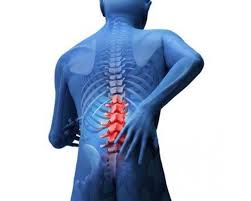8 Tips For Preventing Injuries and Improving Performance
For those looking to start a fitness program or anyone starting their pre-season here are some tips that may assist you.
For those looking to start a fitness program or anyone starting their pre-season here are some tips that may assist you.
- Start at an appropriate level. Many people start a season or an exercise program at a level that is way too high for their level of conditioning. My advice is to ease gradually into your training, get a decent pre-season in and get some professional advice, taking into account your physical and medical history, age, experience, goals and fitness level.
- Mix it up. There is no one perfect activity. Running for example is excellent for the cardiovascular system but offers minimal strength benefits together with a high level of impact. Heavy weight lifting will not improve your cardio but will make you stronger. Yoga is great for flexibility but offers less interms of cardiovascular or strengthening than running or gym. Generally each activity has its good and bad points and biases a particular part of your body. Doing different things on different days breaks the monotony, allows for adequate recovery and produces a better overall result.
- If you want to improve sport performance include other activities. The high demands of sport require flexibility, strength, agility, speed, and endurance. Focusing on each of these components separately will result in better overall sporting performance. Even for sports with a high cardio need such as soccer, weight training can be beneficial to some people. It is possible to get much stronger and faster without gaining weight or detracting from your cardio fitness. Normal gym training and body building does not cut it here so get specialist advice on this one.
- Warm up properly. This is rarely done properly. Warm-up should include activities that also improve your performance on the field as well as prevent injuries.
- To brace or not to brace. Which braces work and which don’t. What is better brace or tape? Bracing and tape are fantastic when used properly and can waste your money or reduce your performance when not. Most braces are useless and tape has to be properly applied. A Physiotherapist is the best person to advise you on these.
- Sort out the niggling injury. Small aches and pains are sometimes indicative of a much larger problem looming under the surface. The best time to manage something early. Recovery time for tendons can be 12 months if let go too long for example. So if you have a problem it is both time and cost effective to sort it out early. Getting this assessed requires an expert.
- Don’t try to figure it out for yourself. Prescribing your own treatment is like representing yourself in court or trying to wire your own roof. If you have a problem get professional advice. When it comes to your health it is good be empowered so look things up but realise that a lot of information on the web is out of date, inaccurate or directed to getting you to purchase something you don’t need.
- Get Screened. Eve Even if you don’t have a problem it is worth a check-up. Musculoskeletal screen helps you identify risks before they occur. A Physiotherapist who understands your sport is the best person to perform this.

